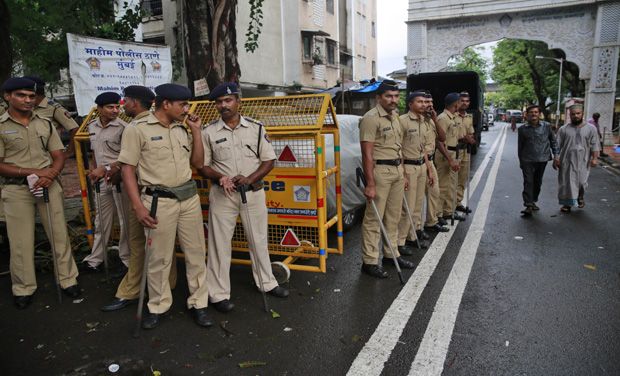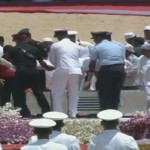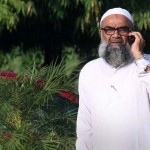Nagpur: The body of Yakub Memon, who was hanged at the Central Prison here this morning for his role in the 1993 Mumbai serial bomb blasts, was handed over to his family and it will be flown to Mumbai for burial.
Memon was hanged till death in the ‘Fansi Yard’ under supervision of Jail Superintendent Yogesh Desai.
“Yes Yakub Memon has been hanged at 7 am sharp and his body is being handed over to his family,” Maharashtra Chief Minister Devendra Fadnavis informed PTI in a text message.
Yakub’s brother Suleman and cousin Usman, who were camping in city since yesterday, received the body, which was being flown to Mumbai.
A team of doctors declared him dead after about half-and-hour of the scheduled hanging, when his body was brought down. Chief Judicial Magistrate of Nagpur M M Deshpande was present in the Fansi Yard.
She read out the operating part of the TADA court order, which awarded capital punishment to Yakub before he was made to stand on a stool and the lever pulled by the hangman.
His brother Suleman had moved an application last evening to the Nagpur jail authorities requesting that the body be handed over to the family. The request was accepted and accordingly, the body was wrapped in ‘Kafan’ (shroud) and placed in a tightly sealed coffin box.
Later, the body was taken to airport and flown to Mumbai. Both Suleiman and Usman boarded the same flight. The mortal remains of Memon will be laid to rest in a Muslim cemetery after the usual last prayer ‘Namaj-e-Janaja’ later today.
Tight security arrangements were made in and around the Central Prison in Nagpur. Quick Response Teams (QRT) were deployed. The authorities also clamped section 144 of CrPC (unlawful assembly) last evening.
A large number of onlookers gathered at some distance outside the jail.
Meanwhile, Mumbai Police, which has not permitted Yakub’s family to carry the body in a procession, has made all arrangements to perform the burial at a cemetery in Marine Lines here.
“We have not permitted Yakub’s family to reach the cemetery in any procession taking into account law and order situation and only those very close to the family would be taking part in his last rites,” a senior police officer said.
“We have already gathered personal details of the people who would be with Yakub’s family,” he added. Since Yakub’s father Abdul Razzak was buried at the Marine Lines cemetery and some of his family members who passed away earlier were also buried there, hence Yakub’s family has wished to perform his last rites there only, another police officer said.
Alternative arrangements have also been made for burial at the Mahim cemetery, he said.
Heavy police force has been deployed at the Marine Lines cemetery, where Memon is likely to be buried.
“We are monitoring and reviewing the security arrangements regularly,” Mumbai Police spokesperson Dhananjay Kulkarni said.
Besides monitoring the law and order situation, smooth traffic movement in the area was also being ensured by Mumbai Police.
Memon, who was the lone convict sent to gallows in the serial blasts which claimed 257 lives across the financial capital of country in 1993, lost a series of legal battles for stay on his execution over a period of time.
His mercy petition under Article 71 was rejected by President Pranab Mukherjee.
Even after the rejection of mercy petition by the President, Memon filed another mercy petition himself on July 21, the day when his curative petition was dismissed.
The mercy petition was contended that his earlier mercy plea was filed by his brother and hence, he was entitled to file his own petition.
As a last minute effort to save 53-year-old Memon from gallows, his lawyers challenged the issuance of black warrant on July 13 contending that the death warrant was issued before the apex court could decide the curative petition.
On this, the bench of Supreme Court comprising Justices Anil Dave and Kurian Joseph gave a split verdict, prompting Chief Justice H L Dattu to constitute a three-Judge bench headed by Justice Deepak Mishra, which finally rejected all the arguments of defence and upheld the decision of the lower court to send him to gallows.
The bench felt there was no procedural lapses in the curative petition. Its validity was upheld by the apex court.



